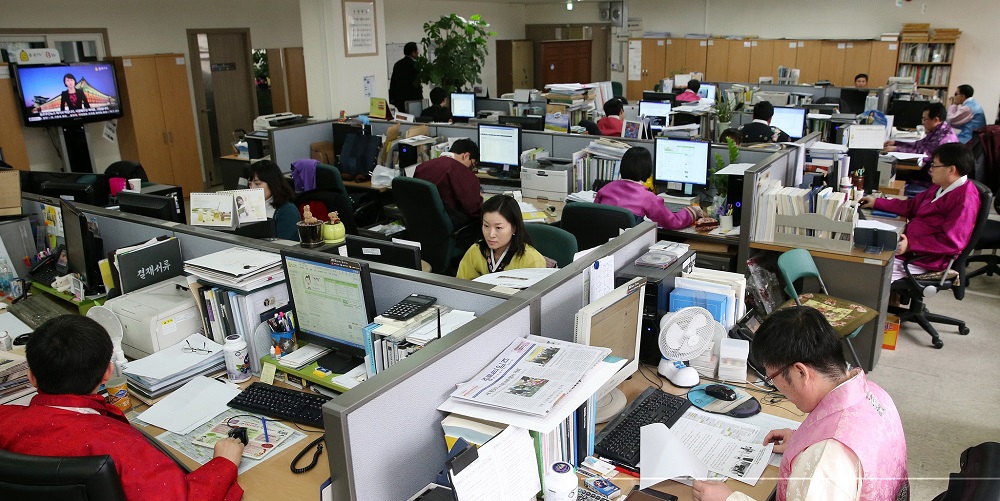The Peninsula
Gender Discrimination in Job Interviews Contributes to Workforce Inequality

By Jenna Gibson
What interests you about this job? What are your greatest strengths and weaknesses? What are your measurements?
One of these questions would raise red flags if asked by a potential employer here in the United States, but it is still relatively common in Korea. One woman who recently applied for a job as a nursery school teacher said she was asked about her family’s economic background, her weight, and whether she planned to continue working after getting married. She is not alone – according to the Korea Herald, in 2014 there were 630 reported cases in which job postings asked for “good-looking” candidates. And surely many more of these types of incidents went unreported.
Technically, these types of questions and other discriminatory practices are illegal in Korea. But they are still so commonplace that the Ministry of Employment and Labor announced on November 3 that they would be cracking down on violations.
According to Labor Ministry official Nah Young-don, who is in charge of youth and women policy, “The corporate culture that violates job seekers’ privacy by asking about marital status and appearance is a problem, but what’s more worrisome is that many companies are not aware of the illegality of such practice.” To help remedy this, the Ministry is sending information on discrimination rules to thousands of major companies. Specific guidelines include: do not specify that a post is for men or women only without a specific reason, do not ask personal questions during the job interview, and do not include requirements related to appearance in job postings.
Violating discrimination laws does carry a 5 million won ($4,400) penalty, but according to the Korea Herald many companies have merely been issued warnings in the past. The Ministry says it will now start handing out fines more broadly.
Of course it’s important to crack down on blatantly discriminatory questions and requirements. However, the Korean government has to go a lot farther if it is going to solve the issue of gender inequality in the workforce.
One major issue that remains is the use of photos on resumes. What good is it to ban interview questions about appearance when the employer will still be able to view the applicant before they even step into the room? The use of photos on resumes is discouraged by the Labor Ministry, which released a standardized resume format in 2007 that excluded categories like height, weight and family background. However, a bill that would specifically ban the inclusion of photos in job applications has been lingering in the National Assembly for three years with no sign of movement.
Korea scored the lowest in the OECD on The Economist’s recent “glass-ceiling index,” which measures female labor-force participation, wage gap, and women in leadership positions. The United States has room to grow as well – at 58.2 points, America is below the OECD average of 60.3 on this index.
During her presidential campaign in 2012, President Park Geun-hye emphasized the importance of addressing the issues women face in the workforce, saying, “More participation of women in the economy is a core engine for the nation’s growth.” And her administration has taken some steps to ameliorate the situation, strengthening the coordinating role of the Ministry of Gender Equality and Family and setting a target ratio for female managers across the public sector. Despite these steps, major obstacles remain for Korean women in the workplace. Tackling the discrimination they face before even being offered a job will not solve all these issues, but it certainly is a good place to start.
Jenna Gibson is the Associate Director for Communication Technology and Programs at the Korea Economic Institute of America. The views expressed here are the author’s alone. KEI intern Juni Kim contributed to the infographic in this post.
Photo from Republic of Korea’s photostream on Flickr Creative Commons.
